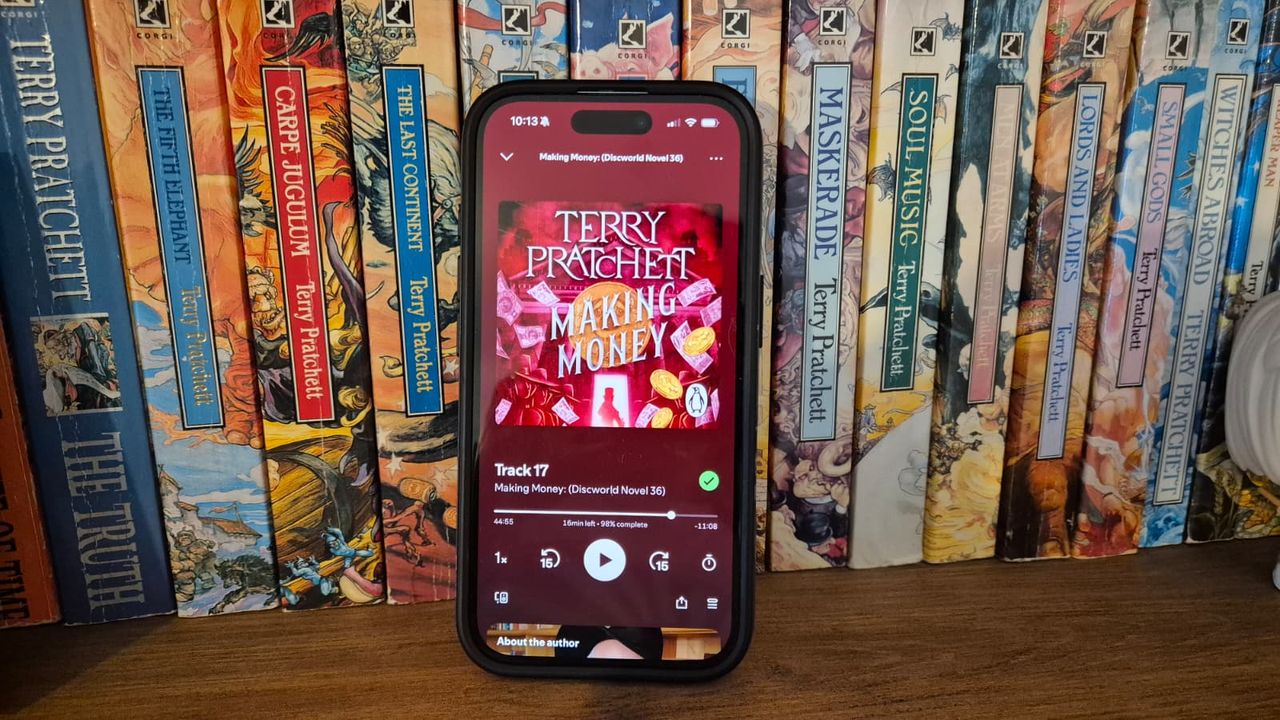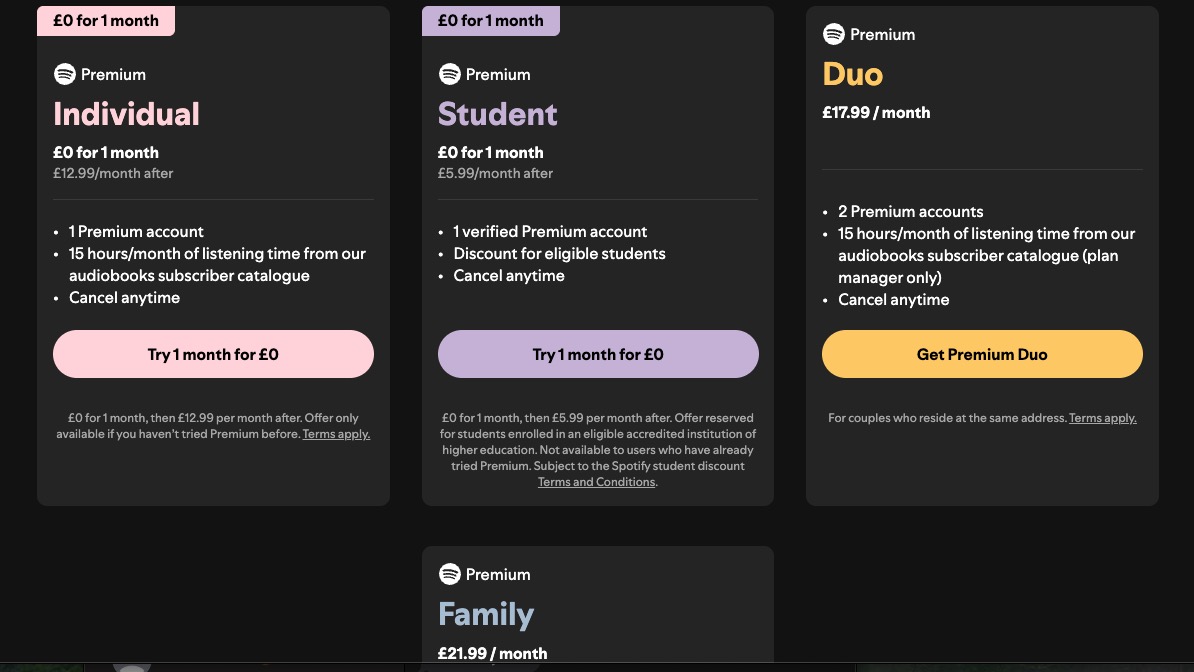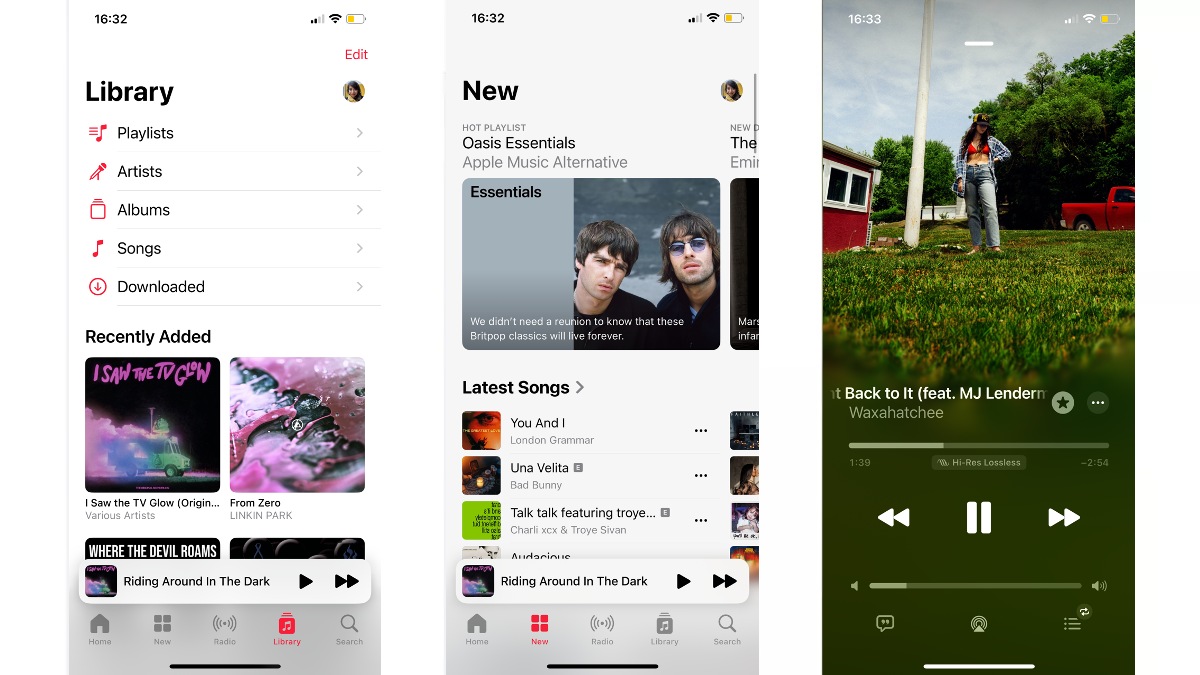
When Spotify launched its long-awaited Lossless streaming quality in September, I quickly signed up for an individual Premium subscription.
A big part of this was for work reasons, of course – I need to use it, test it and hear how this higher audio quality tier compares against its key rivals Tidal, Qobuz and Apple Music.
I signed up for a great two-months-for-£6 offer, with a mental note to cancel it once it ended in mid-November, as I simply couldn't justify having yet another music subscription on my monthly bill. Except, after not using Spotify for many years, I found myself rather enjoying the various playlists and recommendations as I rediscovered Spotify.
But most importantly, I got hooked on audiobooks.
Reliving the experience of reading Terry Pratchett's Discworld novels over audiobook has been an absolute joy over the past two months, and I have loved being back in the city of Ankh-Morpork and its multitude of characters and adventures, and having Pratchett's incredibly sharp wit and even sharper satire running through my brain. When it came time to either cancel or carry on with my subscription, I was still halfway through Making Money – I couldn't stop now.
But my delight was punctured. A day before my full-price individual subscription was set to renew, I got that dreaded email through: that Spotify will be increasing the price of the individual Premium subscription by £1. For me, this meant my bill would be going up from £11.99 to £12.99 per month, starting from January 2026.
And that's a shame. Unlike other streaming services, Spotify has been increasing its price nearly every year, with a £1/$1 price rise in 2023 in UK and US, and another rise in 2024 to £11.99 / $11.99 for the Premium individual plans. Music Business World reported in October 2025 – only a month after Lossless was launched – that UK and Switzerland customers would be facing yet another £1 increase in subscriptions, while noting that US customers can expect another price rise in 2026.
Spotify says in the email sent to me: “The price of Premium Individual is increasing so that we can invest in our product, develop new features and continue to bring you the best experience.”

While I acknowledge that this streaming service giant has more subscribers than its rivals, and the demands of maintaining the service as well as introducing new features have their cost, I'm not sure the frequency of its price rise necessarily reflects the new features – at least from the point of view of a music fan who prioritises sound quality.
The introduction of Spotify's Lossless quality, which offers higher-resolution file quality up to 24-bit/44.1kHz FLAC across its catalogue, is a feature many years in the making. It was included as part of Spotify's Premium tier, at no extra cost – at the time of launch, on 10th September. While this is an improvement over Spotify's previous 320kbps max file quality, this Lossless tier still trails behind its rivals, which offer up to full-fat 24-bit/192kHz hi-res quality.
In our updated Spotify review, we gave the streaming service four stars at its £11.99/month subscription price, noting its many feature strengths, but also pointing out that its overall sound quality (and hi-res limits) still fall behind the class leaders Tidal, Qobuz and Apple Music.
Besides Lossless, which is undoubtedly the biggest update to the streaming service for music and hi-fi fans, the service has included various other features, such as enhanced listening stats, more sharing options, an AI-driven DJ and various others. Sadly, none of these, for my personal use, seems big enough to warrant paying for a price increase yet again.

In comparison, when Apple Music introduced hi-res and lossless streaming quality across its entire catalogue, it didn't increase its standard subscription. Tidal also simplified its tiers and didn't change pricing when MQA files were swapped for FLAC files in its hi-res tier. Apple Music and Tidal both currently charge £10.99 / $10.99 per month for an individual plan. Qobuz is the only one to match Spotify with a £12.99 monthly subscription; but what Qobuz lacks in extra recommendations, stats and sharing features, it makes up for with a dedication to offering only CD-quality and higher streaming.
Spotify's plethora of recommendations, its annual Wrapped stats, and its audiobook and podcast offerings are an embarrassment of riches. But when I'm already subscribed to another (better-sounding) music subscription service, have one or two TV/film subscriptions, and I can get podcasts for cheaper elsewhere, I'm not sure I can justify sticking with Spotify in the new year when the price rise comes into place.
What about my new love for audiobooks? I'll have to simply pick up my well-thumbed Discworld novels from my bookshelf and read through them again. For free.
MORE:
Read our full Spotify review
Hi-res music streaming services compared: Tidal, Qobuz, Apple Music, Amazon and Spotify
Spotify snubbing spatial audio could be the smartest decision it ever makes







